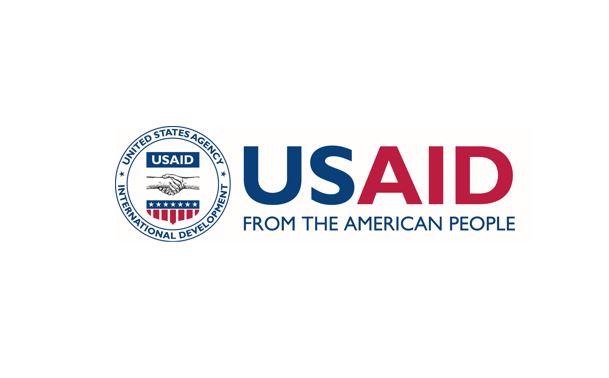Terms of Reference for Consultant for GHSA activity

Introduction
In this era of globalization, infectious disease transmission has become a matter of concern for public health safety. Human mobility, especially by air travel, has exacerbated the hazards associated with the spread of infectious diseases [1]. Important cases in global history include the SARS-CoV which originated from China and affected 8000 people in 25 countries in 2004, MERS-CoV first identified in Saudi Arabia and spreading to 27 countries and Zika with geographic origins in Asia and Africa spreading to the Americas [2]–[5]. The COVID-19 pandemic was similarly identified in Wuhan China and has subsequently affected almost every country worldwide.
In 2014, a multisectoral approach led by countries, regions, non-governmental organisations and international organisations was set up to address the challenges of infectious diseases [6]. The Global Health Security Agenda (GHSA) was thus setup in February 2014 to improve country capacity to prevent, detect and respond to infectious disease threats. The GHSA commitment is to strengthen the capacity of individual national surveillance systems which will result in global capacity to manage public health threats [6].
Resilient public health surveillance ensures that information from multiple sources can be integrated to address public health emergencies and provide evidence for targeting resources and evaluating programmes [8]. For GHSA systems to be effective, there is the need for integration within health systems and coordination and collaboration with various government agencies [7]. Data from multiple sources including the human and animal health, agriculture, security, defence, law enforcement, development assistance, foreign affairs, research, and finance sectors must be synergized to ensure effective public health surveillance.
Countries will have to enforce measures that will require integration of multiple sources of data from various sectors into routine health surveillance to promote the chances of preventing, detecting and responding appropriately to public health threats. Evidence of inter-agency collaboration in public health surveillance in Ghana has shown that when a modified community-based surveillance system adopts a multi-sectoral approach in obtaining data for disease surveillance, it is able to signal health events of various origins [9].
The World Health Organisation’s (WHO) Integrated Health Services Department and USAID Office of Health Systems (OHS) collaborated on an activity to identify opportunities for applying an integrated approach to health system strengthening to better improve coordination for building sustainable, resilient health systems at policy, planning and operational levels within countries. A few of the main findings from this activity were 1) gaps at the country level in the use of data collected through disease surveillance systems and 2) a lack of integration of this data with routine health data and other non-health data for decision-making.
To address these areas in need of improvement, the USAID Country Health Information System and Data Use (CHISU), OHS and WHO are collaborating to assess the gaps in data use of disease surveillance data for public health emergencies and identify opportunities for strengthening integration of surveillance data with the national routine health data and non-health data.
Documenting the data sources, identifying the gaps in data collected for disease surveillance and reviewing data integration for routine health data with non-health data will provide a basis for reforms in these processes and encourage the allocation of resources to agencies to improve public health surveillance activities. This activity is to be carried out in Ghana, Kenya, Burkina Faso, Zambia and Madagascar.
Objectives
1. To document data sources, systems and processes used in selected countries to respond to public health threats.
2. Assess gaps in data use and integration of disease surveillance and HMIS data for public health emergencies
Terms Of Reference or Work Assignment :
The specific tasks will include :
1. Working with GEMNeT to identify a core set of GHSA indicators for each country ;
2. Identifying and interviewing respondents in-country with experience in routine health information systems and disease surveillance systems and or one health systems ;
3. Identifying key documents on routine health information systems and disease surveillance systems and or one health systems ;
4. Conducting analysis and synthesis of the data, and interpreting the results ;
5. Writing a report with key findings from interviews
Deliverables
1. Interview transcripts obtained from interviewing respondents
2. Analysis of data obtained from interviews
3. Key documents on routine health information systems and disease surveillance systems and or one health systems
Required Qualifications
Education : Post Graduate qualifications or training in Health informatics, Digital Health or Public Health.
Experience : At least 3 years practical experience in assessing public health surveillance systems and experience in qualitative data analysis.
Skills : Qualitative research and data analysis
Language : Ability to speak and write English fluently.
Ability to speak and write French and English fluently is a requirement in the case of francophone countries.
Timelines :
The activities are anticipated to be implemented over a 6-month period.
To apply
Please email a CV and proposed daily rate (and/or any questions) to fbvroom@ug.edu.gh and to gemnet-health@ug.edu.gh copy to rahim_kebe@bf.jsi.com
About GEMNet-Health
With a wealth of technical expertise and experience, Global Evaluation and Monitoring Network for Health (GEMNet-Health), established in 2012, fosters organisational growth, collaboration, and peer-to-peer support for Monitoring and Evaluation of health programs globally through ongoing institutional linkages among members. As a network with a diverse set of skills and experiences and with members located across continents, GEMNet-Health is a global resource for technical assistance, consultancy services and capacity building in the field of Monitoring and Evaluation, including work with health information systems, data dissemination and use, health informatics, and specialized M&E topics.

